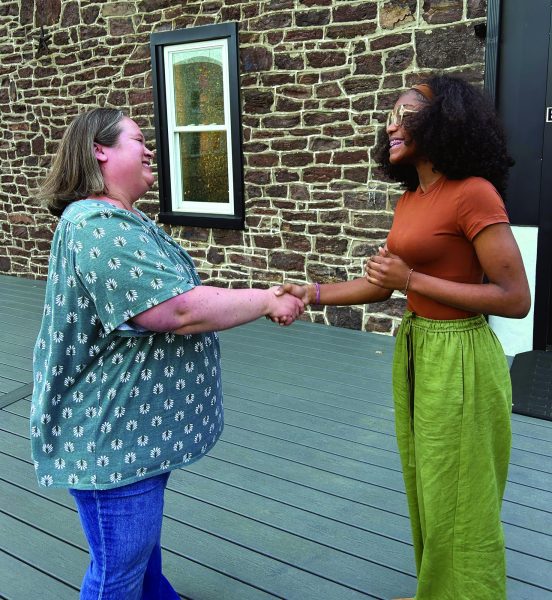Lunar New Year celebrants cherish their families
By taking part in traditions and spending quality time with family, students celebrated Lunar New Year on January 22. While students may celebrate Lunar New Year differently, family is their main focus.
To celebrate Lunar New Year, Souderton students participated in traditions and spent time with their families to celebrate the new year on the lunisolar calendar on January 22.
According to History.com, Lunar New Year, also known as Chinese New Year or Spring Festival, is a holiday to celebrate the new year on the lunisolar calendar. Many students of different cultures celebrate Lunar New Year.
Each year is marked by one of the 12 Chinese zodiac animals on the lunisolar calendar.
On January 22, this year became the year of the rabbit.
World language teacher Xia Pomposi said Chinese New Year is “all about the family.”
“The big thing we celebrate is all about family,” Pomposi said. “The whole point [of Chinese New Year] is about family.”
Asian Culture Club President Lydia Hwang said “family” is what Lunar New Year means to her.
Spending time with all of her relatives is what senior Amy Tran said is her favorite part about Lunar New Year.
“I like to spend time with my family and you don’t do that often with the whole family,” Tran said.
One of the biggest traditions related to Chinese New Year is the exchange of red envelopes.
“There are envelopes that the parents and the elders give to you that have money inside and they give it to all the young people. That signifies good luck,” senior Kelly Tran said.
Many people partake in Chinese New Year traditions in hopes of bringing good luck into the new year.
Pomposi said that in China when Chinese New Year celebrations begin, people will keep all of their trash in a designated part of the home. According to Pomposi, this is done in order to not “sweep” away any good luck coming to the family in the new year.
Senior Sophia Lam said that a tradition in her family consists of going to her temple in Philadelphia to celebrate.
“It’s nice to go back every year and see our monk and do everything the same every year,” Lam said.
According to Hwang, in Korean culture, Lunar New Year is a time when people “pay respect” to their “ancestors and elders.”
“It is a time where I get to remember my grandpa and pay respect to him since his passing,” Hwang said.“In Korean culture, paying respect to our ancestors allows them to pass on good luck for the new year.”
There are also many dishes that different cultures eat during the new year celebrations.
Tran said that her family makes traditional Vietnamese dishes during the holiday.
“There’s a lot of Vietnamese food that we make. That would be Vietnamese hot pot, we also have egg rolls and sometimes we make phở,” Kelly Tran said.
During Lunar New Year, Hwang’s family makes traditional Korean meals.
“The most common dish to be eaten in Korea is a rice cake soup. Some other foods consist of dumplings, fish, japchae and other vegetables,” Hwang said. “My favorite has to be the dumplings, especially because I always help my mom make them the morning of which is our own little tradition.”





